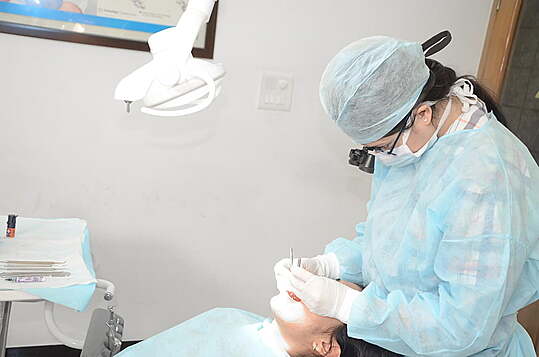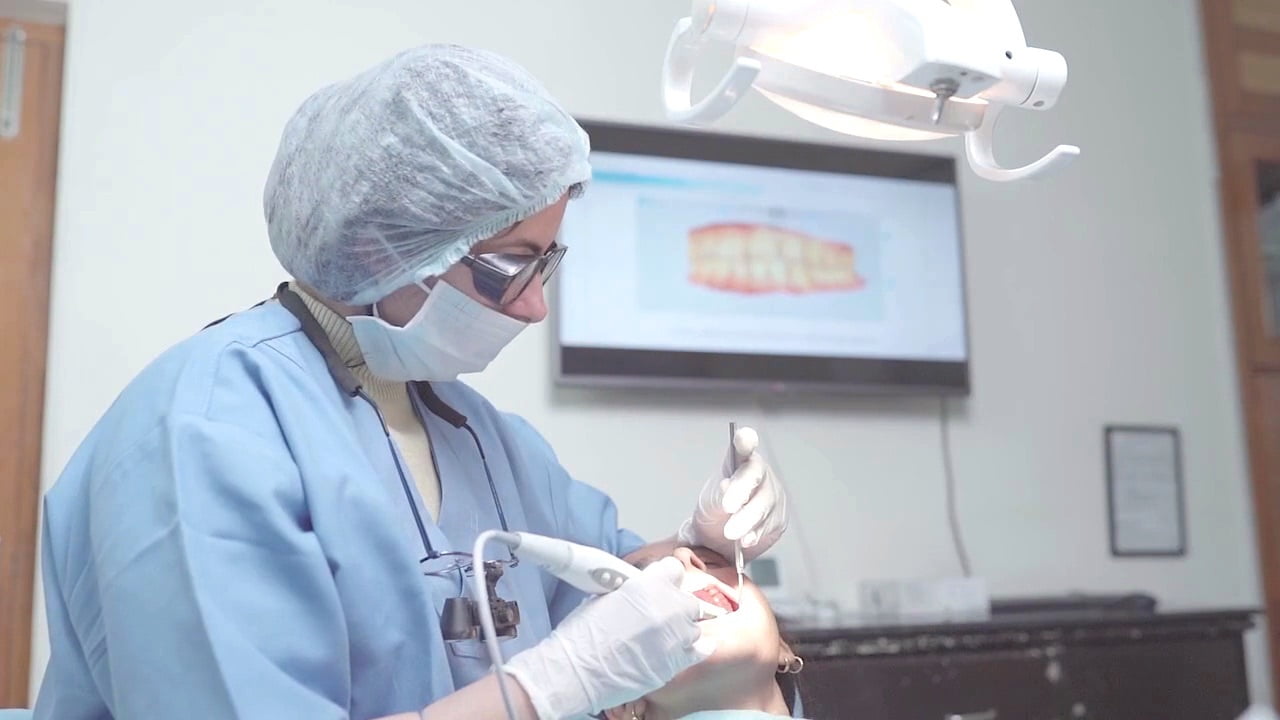Suffering from Sensitive Teeth?
- Tooth Pain: Sensitive teeth often experience sharp or sudden pain when exposed to hot or cold temperatures.
- Sensitivity to Cold and Hot is a typical symptom and can be immediate and intense, subsiding once the stimulus is removed.
- Pain with Sweet or Sour Foods when consuming sugary or acidic foods and beverages. This can include items like citrus fruits, soda, or candies.
- Discomfort while Brushing or Flossing if you use a hard-bristled toothbrush or apply excessive pressure. Gum Sensitivity when touched or while brushing along the gumline.
- Enamel Wear exposing the dentin underneath, which contains sensitive nerve endings.

If you’re dealing with sensitive teeth and facing problems due to tooth sensitivity, contact us to schedule a checkup.

What Causes sensitive teeth?
Other causes wearing of Enamel- Tooth Sensitivity?
Treatment for Sensitive Teeth
Here are some common treatments and preventive measures for sensitive teeth.
- Fluoride Treatments: Professional fluoride treatments at the dentist's office or using fluoride mouth rinses at home can help strengthen tooth enamel and reduce sensitivity.
- Dental Bonding: In cases where tooth enamel is worn down or exposed, dental bonding can be done. This involves applying a tooth-colored resin to the affected areas, which helps protect the exposed dentin and reduce sensitivity.
- Gum Grafting & Dental Sealants can be applied to cover and protect the exposed root surfaces, reducing sensitivity.
- Regular Dental Check-ups: Regular dental check-ups and cleanings are important for identifying and addressing any dental issues that may contribute to sensitivity.


Home Remedies for Sensitive Teeth
- Avoid hard brushing (always use a soft toothbrush) and Use anti sensitivity toothpaste
- Rinses with Luke warm saltwater. Read in detail about how to use warm salt water.
- Avoid spicy or acidic foods and drinks. Prefer fruits and vegetables
- Avoid drinking excessively hot and cold beverages
- Use Night guards and avoid clenching your teeth
- Avoid Chemical home bleaching of your teeth bleaching
- To reduce pain from sensitive teeth, rinse your mouth with warm water and a spoonful of honey. This rinse will promote oral healing.
- For sensitive teeth, use unsweetened green tea as a mouthwash twice a day to strengthen teeth and reduce inflammation.














